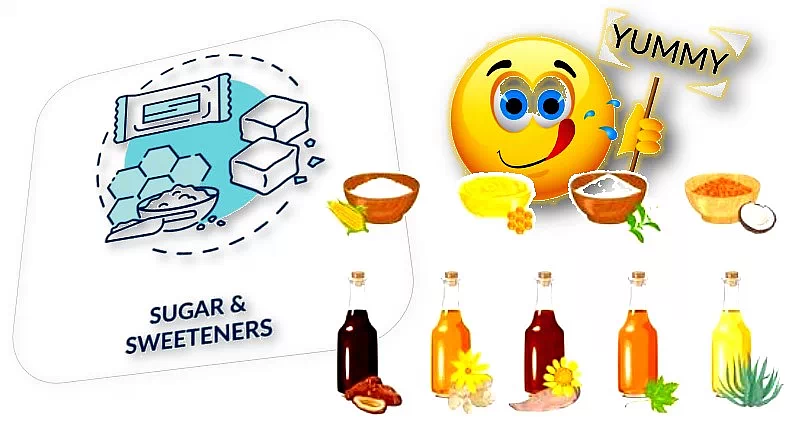Sugar & Sweeteners – Nutritional Values
Sugar and sweeteners can be part of a balanced diet. These are natural and nontoxic if taken in moderation.
They provide an important fuel source. Sugar is exclusively used by certain brain and body tissues and red blood cells for energy. Sugar and sweeteners are the building blocks of carbohydrates.
Honey, syrup, and juices are free sugars. Humans have an innate desire for sweet taste.
The foods that contain natural sugar:
Milk, grains, fruit, and vegetables.
All sugars contain four calories per gram. Our body does not know the difference between natural sugars and processed sugars.
If sugar is added to foods such as baked goods, cereals, flavored yogurt, and sweetened beverages provide calories. But there is a disadvantage that they contain few other nutrients. So it is recommended by WHO (World Health Organization) to moderate the consumption of sugar to 10%.
Another disadvantage is that high consumption of added sugar risk us having obesity, diabetes, and heart diseases.
Modern foods such as candies, crackers, soups, and salads are prolific sweeteners.
Some common natural sweeteners:
Table sugar, molasses, honey, maple syrup, agave nectar, and corn syrup.
Some common artificial sweeteners:
Saccharin, Aspartame, Acesulfame-K, Sucralose, Neotame, Advantame, Cyclamates, Sugar Alcohols, and Stevia.
Artificial sweeteners also known as sugar substitutes contain markedly less calories compared with sugar. They can be obtained from natural or synthetic sources. The sugar substitutes that are available naturally are stevia and sugar alcohols.
World’s Dominating Diets



